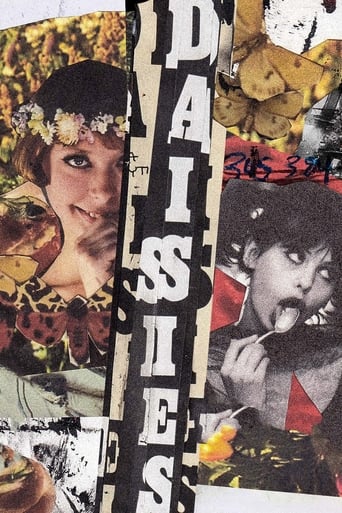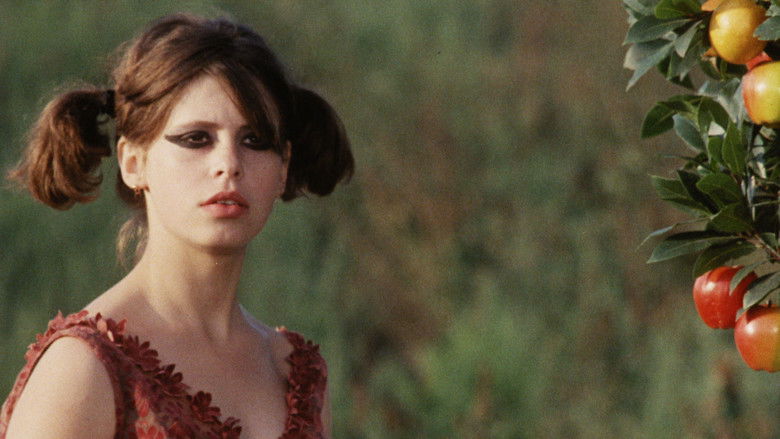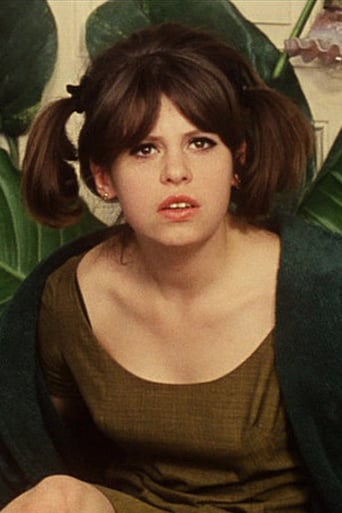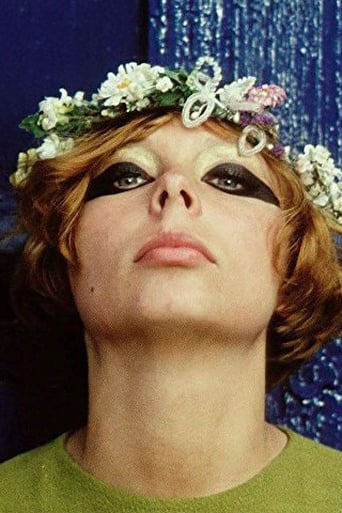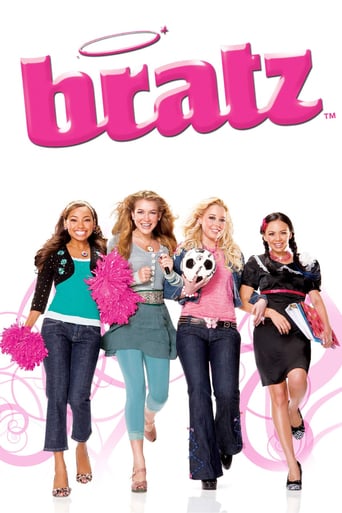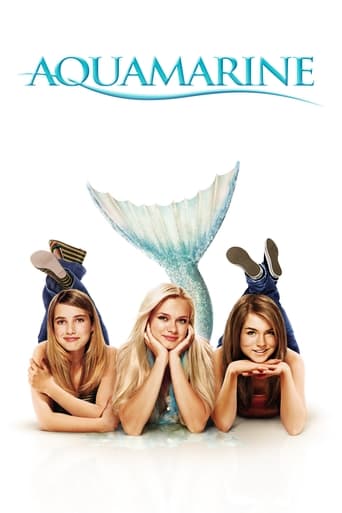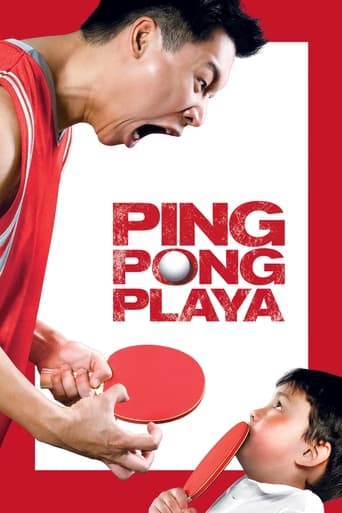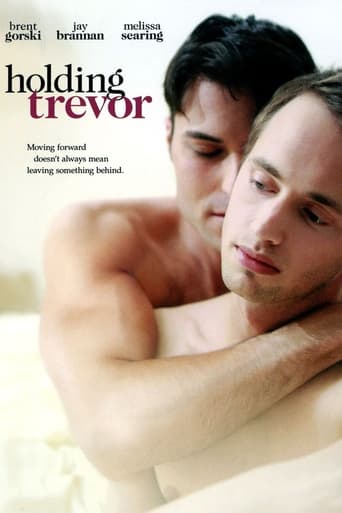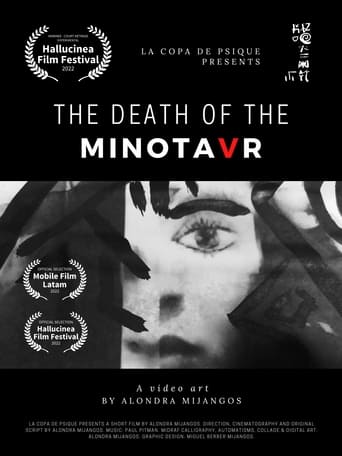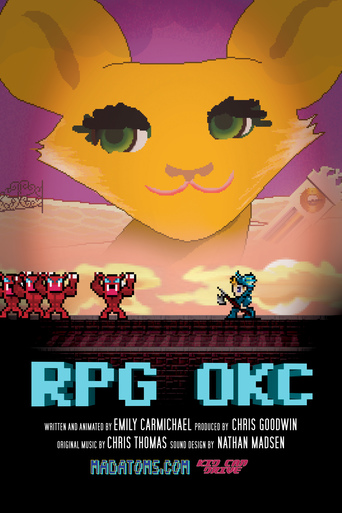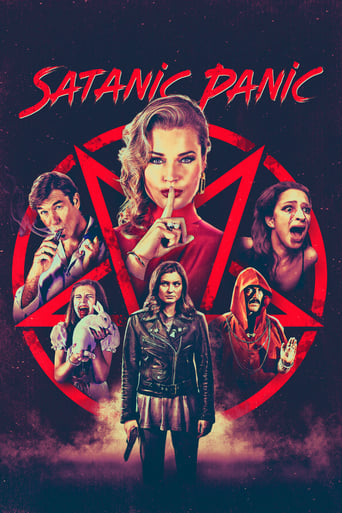Daisies (2022)
Two teenage girls embark on a series of destructive pranks in which they consume and destroy the world around them.
Watch Trailer
Free Trial Channels
Cast


Similar titles
Reviews
Instead, you get a movie that's enjoyable enough, but leaves you feeling like it could have been much, much more.
Although I seem to have had higher expectations than I thought, the movie is super entertaining.
This is one of the best movies I’ve seen in a very long time. You have to go and see this on the big screen.
Great movie. Not sure what people expected but I found it highly entertaining.
This Czechoslovakian film featured in the book 1001 Movies You Must See Before You Die was one I certainly did not know anything about regarding the plot or storyline, but when I read a little about it had some good feedback from the critics and it was one I looked forward to trying out. Basically the story revolves around two teenage girls both with the same name, Marie I (Jitka Cerhová) and Marie II (Ivana Karbanová) both have seemingly robotic personalities, but when it comes to their attitude towards life it is very immature. Almost the entire length of the film sees the two Maries cause all kinds of havoc for their own amusement and to the irritation and embarrassment of others, but they also find themselves on occasion in the arms of vulnerable men who want more serious relationships with them. Marie I and Marie II eat from a supposedly forbidden fruit tree (like the Tree of Knowledge of Good and Evil), they eat vigorously with no real manners including many odd looking foods, they outperform some professional dancers trying to entertain, they behave like pests with some restaurant waiters, they mess up and destroy a few rooms ready for guests, and they play tricks on a man about town (Julius Albert) (and some others) that they pretend to want relationships with but really they just use. In the end, after so much trouble making and pranks the two girls really learn a nasty lesson when they are killed by a large chandelier falling on and crushing them, but they were planning to put things wrong that they did wrong, this obviously came too late. As the two young childish and very naughty teenagers Cerhová and Karbanová give very believable performances, the film does most of the time feel rather weird and because of its destructive and anarchic material it was at the time banned by the Czech authorities, but now it is seen as an interesting alternative and surreal comedy film. Very good!
Perhaps because Vera Chytilova directed 'Daisies' in 1966, at the start of the Prague Spring, that subsequent viewers scramble in a mad rush to label the film as a feminist outcry against the patriarchal hegemony organised along communist themes of repressive theocracy.Even without any prior knowledge of the historical context in which this film emanated, it works as a playful collage of surrealistic scenes which serve as an ironic lambast and a helping of satirical lashing against the entrenched consumerism and conventional normative of the day: a mad, bad, coming of age story embodying two young girls who decide that if the world is 'so bad', then they will be too. How exactly is the world so bad, then? There is one very oblique reference to war in the very beginning of the film, but in general the themes which are propelled to the forefront and unpicked with gentle satire (well, and slapstick comedy, and cartoon animations, and lackadaisical fun-o-rama) focus on nihilism, hedonism, decay of moral values, ennui and lack of any productive and meaningful life goals. Rebelling against all this is perhaps the true definition of a 'rebel without a cause', and perhaps there is never any 'age' when disenchanted incumbents won't have a go at the moral depravity of their peers, as each generation discovers anew the hypocrisy and disinterment between society paying lip service to social values and the underlying reality which ensconces the exact opposite.So, Marie and Marie (our two protagonists), are going to be 'bad'. But, not too bad: this isn't going to be the Czech version of 'a Clockwork Orange' by any means. Bad here means taking unscrupulous old men for a ride: wizened insufferables who hope to score based on paying for a meal. Well, if eating their food and sending them on their way makes the two Maries bad, what in heavens name would they have done if they were 'good': succumbed to the wily charms of the octogenarians? Uugh, it doesn't bear thinking.Being bad is defined twice more in the film: once as the girls get tipsy in a cabaret and stage an impromptu side show in their cubicle as they start jiving: (quelle horreur!) and once more at the finale when they descend upon a baquet hall and proceed to systematically destroy the food plateau, the room's fixtures and furnishing as well as the banqueting table and all the accoutrements on it. All this is done so playfully, gracefully, and sweetly that the viewers get swept up in the ride: we're not indignant at the wanton destruction as these two scamps wallop, we're enchanted: not least by the food fight and strip tease which culminate the scene.But what happens next, the true denouement and final scene of the film, is an ironic take of double entendre which demands kudos. The two Maries decide they are going to try and make amends having wreaked havoc with the food hall. Why they decide this, remains unclear: is it because polit bureau apparatchiks are whispering sweet somethings in Chytilova's ear? Is it because she wants one final stab at bohemian assertion? In any event, the two Maries are going to make good: they tell us so: 'We shall be happy because we are good' they say. But in a tonal chorus set to a grating repetitive basso continuo which leaves the audience in no doubt that they mean the opposite. Dressed in newspaper rags (which would probably have Lady Gaga enthralled if she had seen it BEFORE the meat dress), they trip around setting the banquet to rights. But just like Humpty Dumpty, they are never going to be able to put this together again. 'Does it matter?' asks Marie number 1. 'No it doesn't matter' says Marie number two, and I can't help cheering them on.
This is one of the strangest non-linear films that I have ever seen, and therefore it is one of the hardest films to comment on. After an excellent beginning montage sequence, the film plunges into the world of two women who agree to be "bad". The reason for this is supposedly that all else is bad in the world already, so they should be bad too. The rest of the film involves them acting glutton, especially when they are around men. So what is the meaning of this? Is it some feminist statement in which the women try to gain power by the way they eat? There are a lot of allusions to the male sexual organs that back up this theory, but the real point of it all is still rather obscure. It is an interesting enough concept as it is, but the downfall comes from the premise being stretched to the length of a feature film. While the excessiveness can be tolerated, the same stuff is generally repeated over and over, and there is little reason apparent why it could have not been done in just twenty minutes of film. As awkward and confusing as it is, the length to which the material is stretched is what hammers is potency. Either way, the film is certainly work a look. The colour work is fascinating, the sound effects are interesting, and it is an intriguing film to a limited extent, due to the ambiguity of its messages and story.
This movie is a trip! Daisies was created in an avant-garde era in which artist were experimenting with abstract music, painting, photography, etc. Furthermore, this movie depicts a feminists perception of the world, specifically men. The first time I watched this film I walked out because it was too far out there for me. But watching it again two years later with a friend and analyzing it made the film much more enjoyable. There are subtle scenes in the film that give the viewer a glimpse of what the director was trying to get through to the audience. For instance, about half-way through the film the main actresses, Marie I and Marie II, begin to chop-up various foods shaped as male genitalia and proceed to eat them. Furthermore, Marie I receives a phone call from a male "companion" in which the traditional male-to-female roles are reversed. In order to get the most out of this movie, try and ask yourself the bigger question..."What is the director trying to tell me?" Rather than, "What the hell is going on?" All-in-all...good film and I highly recommend it.

